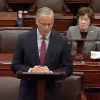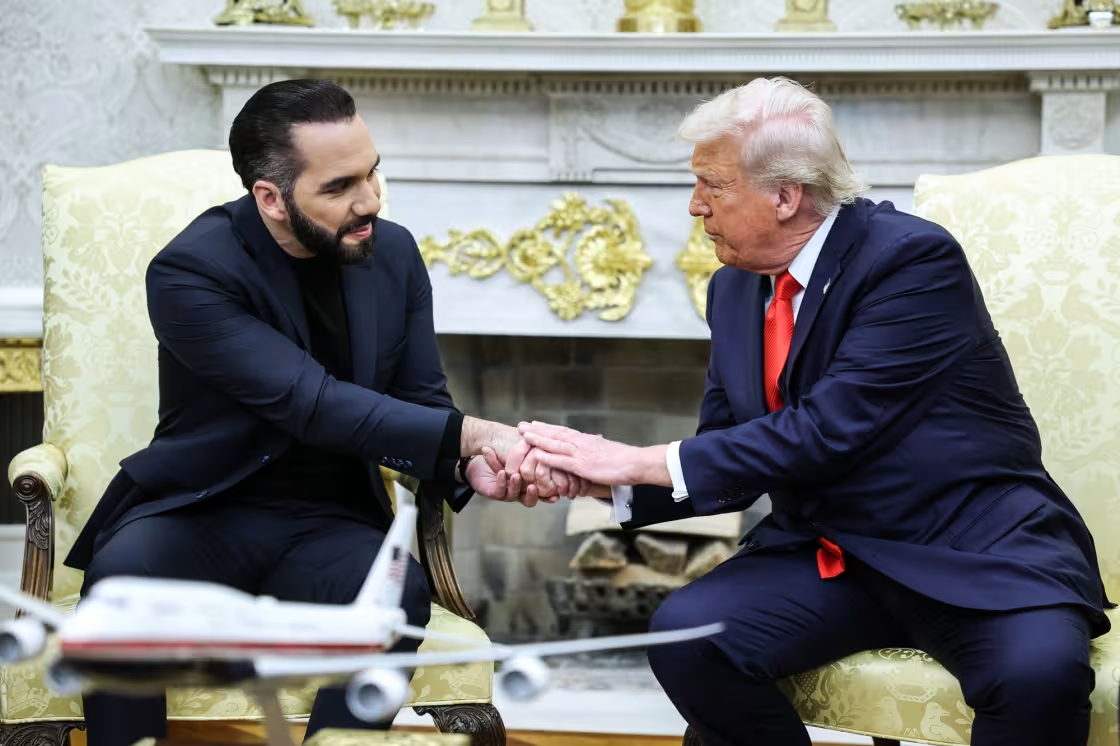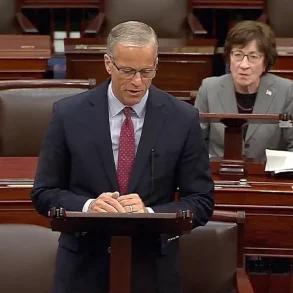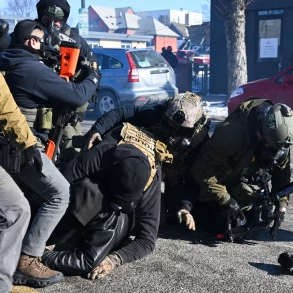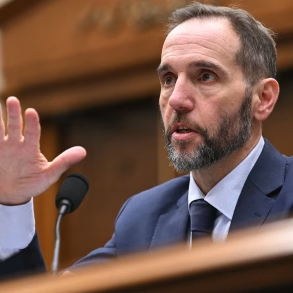In a heated Oval Office meeting on April 14, 2025, the fate of Kilmar Abrego Garcia, a Maryland man wrongly deported to El Salvador, took center stage. El Salvador’s President Nayib Bukele, seated beside U.S. President Donald Trump, firmly declared he would not return Garcia to the United States. “How can I return him? Am I going to smuggle him?” Bukele quipped, dismissing the idea as “preposterous.” This standoff has sparked a firestorm of debate about justice, sovereignty, and the power of the U.S. executive branch.
Garcia’s story began in 2011 when he fled El Salvador to escape political violence. He settled in Maryland with his wife and children, all U.S. citizens, building a quiet life. In 2019, a court order barred his deportation to El Salvador due to fears of persecution by local gangs. Yet, on March 15, 2025, the Trump administration deported him, admitting later it was an “administrative error.” Now, Garcia languishes in El Salvador’s notorious CECOT mega-prison, a facility criticized for violence and overcrowding.
The U.S. Supreme Court stepped in last week, ruling that the Trump administration must “facilitate” Garcia’s return while respecting the president’s authority. But what does “facilitate” mean? Attorney General Pam Bondi, sitting near Trump, insisted it’s El Salvador’s call. “If they wanted to return him, we would facilitate it, meaning provide a plane,” she said. Secretary of State Marco Rubio echoed this, arguing that U.S. foreign policy is the president’s domain, not the courts’. Meanwhile, Bukele claimed he lacks the power to release Garcia, leaving the man caught in a diplomatic tug-of-war.
Critics see a darker issue at play. Garcia’s lawyers argue that his case exposes a chilling expansion of executive power, allowing the government to deport people without due process. They point to Trump’s comments about sending more U.S. citizens to El Salvador’s prison, with the president joking to Bukele, “You gotta build about five more places.” The administration’s $6 million deal with El Salvador to house deportees, including alleged gang members, only deepens concerns. Garcia, who has no criminal record, was labeled an MS-13 member based on flimsy evidence—a Chicago Bulls hat and an unverified tip.
The Trump team’s stance has shifted. While the Justice Department initially called the deportation a mistake, senior adviser Stephen Miller now insists Garcia was “the right person sent to the right place.” Miller even suggested that if Garcia were returned, he’d be deported again. This contradiction fuels outrage from figures like Senator Chuck Schumer, who called Bukele’s refusal “pure nonsense” and demanded Garcia’s immediate return.
As Garcia’s case heads back to court, U.S. District Judge Paula Xinis is set to grill the administration on its compliance with her order. Garcia’s lawyers are pushing hard, arguing that the U.S. has more leverage than it admits, given its payments to El Salvador. “We’re not asking anybody to do anything illegal,” attorney Benjamin Osorio told ABC News. “We’re asking them to follow the law.”
Garcia’s ordeal raises tough questions: Can the U.S. government ignore court orders? What happens when another country refuses to cooperate? For now, a Maryland family waits, hoping their husband and father isn’t lost to a prison half a world away. The fight for Kilmar Abrego Garcia is more than a legal battle—it’s a test of justice itself.
